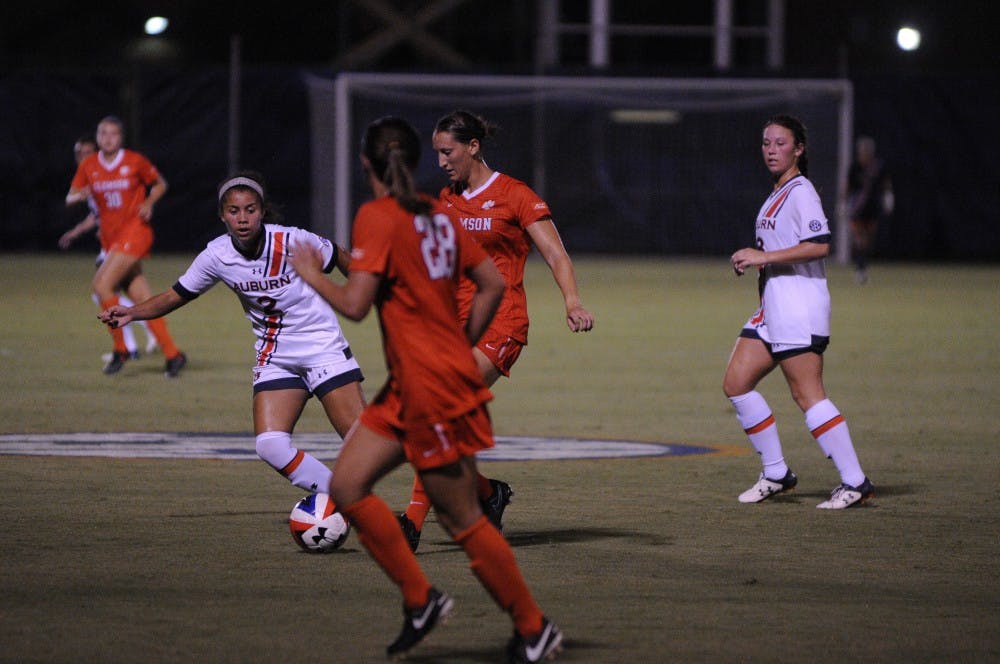Walking around campus, you can hear comments on anything from how cute that dog is to how someone has already had six cups of coffee before lunch, but one of the most prevalent themes is time, especially never having enough of it.
Dani Solaru, junior in political science, plays for the Auburn women’s soccer team. After three years of balancing her studies, social life and soccer practice on a Division-I level, Solaru has some advice to share.
“I still remember my freshman year just being completely overwhelmed at how many things there were,” Solaru said. “Like I would always say, ‘Why are there always so many things to do as an adult?’ Like I don’t understand this.”
Solaru said she didn’t totally realize how playing a sport makes college more difficult.
Getting a schedule was Solaru’s first step to taking control over her busy life, filling it out with her monthly, weekly and daily events and assignments. She even has to plan out what to take to class with her every day because she doesn’t have time to go home between events.
After her freshman year, with her affectionately dubbed “organized chaos,” Solaru learned the importance of not spreading herself too thin in her commitments.
“So it really was just a shock value of wanting to do everything, right when you come into college and thinking that you can do everything and you have all of this freedom and your home is here, so you’re at school all of the time so you just kind of end up taking on too much, and its a little bit of a panic,” Solaru said.
She stressed that the rhythm and practice of going through a daily schedule and trying to budget time more wisely every day are essential to good time management.
“I think that people now, like my trainers and my strength and conditioning coach, actually notice a huge difference in me,” Solaru said. “Even my parents are like ‘Dani, you’re not the same Dani as you were freshman year.’”
To help her budget her time wisely, Solaru had to learn to control her effort as well.
“I would always have just anxiety if I wasn’t able to spend 100 percent of my time on something or make it perfect like writing a paper,” Solaru said. “If it’s bad, I’m like I just can’t keep writing. This kind of allowed me to find a balance between me understanding what I need to do to get a good grade on something or to do a good job at practice while still delegating time to other things.”
Spending six hours a day on soccer commitments gave Solaru plenty of opportunities to practice this skill set.
Being able to gauge the amount of work necessary for a task without overextending her time and resources has helped her to find a balance.
“So, it doesn’t always need to be 100 percent,” Solaru said. “It just needs to be good enough. That sounds really bad, but it’s kind of like if you can’t do something to a satisfactory degree in anything, then you have too much on your plate. There are some things that you’ll be able to do to 100 percent, but it’s not everything. So, it’s also being able to learn that and cope with that type of idea, too.”
Do you like this story? The Plainsman doesn't accept money from tuition or student fees, and we don't charge a subscription fee. But you can donate to support The Plainsman.





